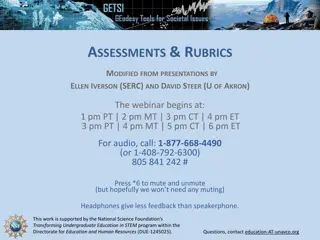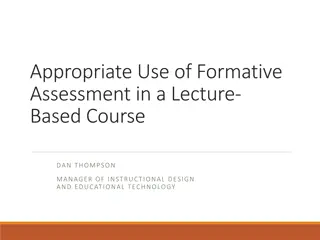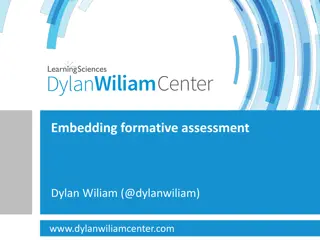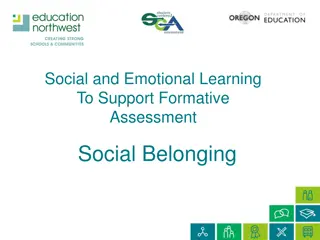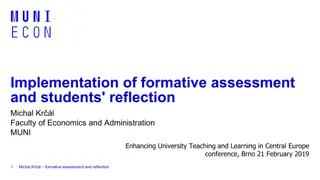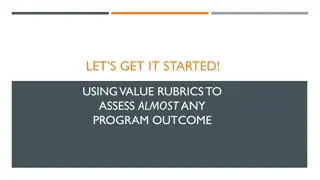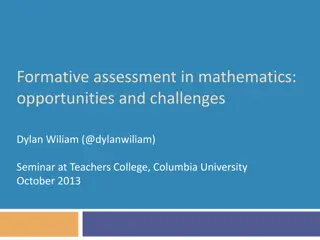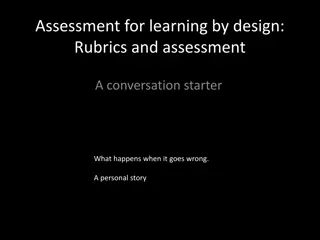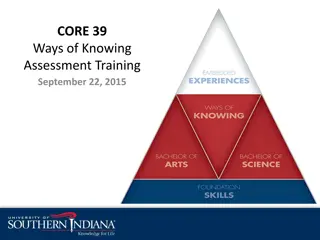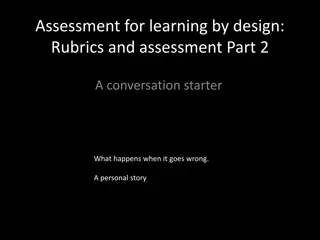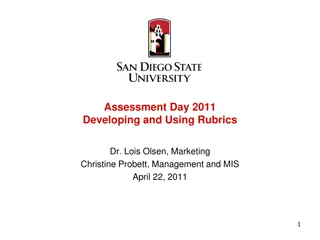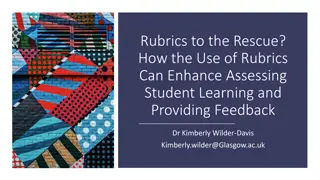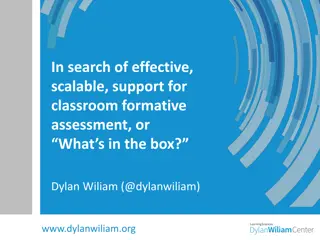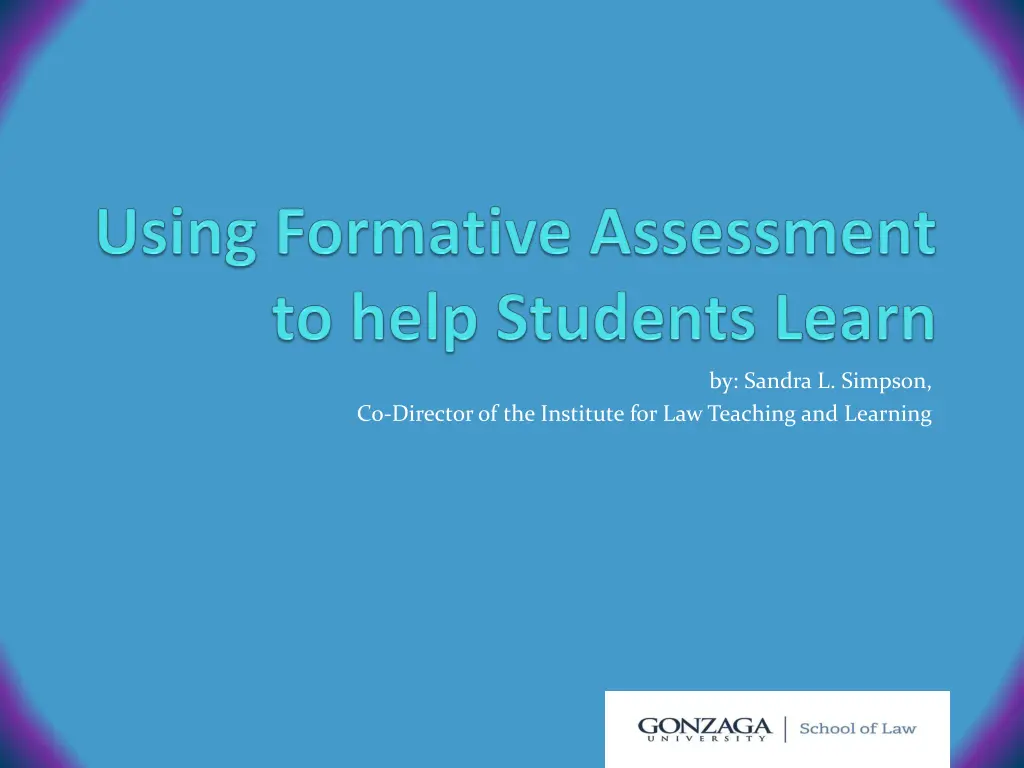
Effective Student Assessment and Feedback Techniques
Explore the importance of student assessment and feedback in enhancing learning outcomes. Discover strategies, such as varied and prompt feedback, rubrics, and polling questions, to improve student engagement and understanding in legal education. Practice with rubrics can foster common language and specific communication among students.
Download Presentation

Please find below an Image/Link to download the presentation.
The content on the website is provided AS IS for your information and personal use only. It may not be sold, licensed, or shared on other websites without obtaining consent from the author. If you encounter any issues during the download, it is possible that the publisher has removed the file from their server.
You are allowed to download the files provided on this website for personal or commercial use, subject to the condition that they are used lawfully. All files are the property of their respective owners.
The content on the website is provided AS IS for your information and personal use only. It may not be sold, licensed, or shared on other websites without obtaining consent from the author.
E N D
Presentation Transcript
by: Sandra L. Simpson, Co-Director of the Institute for Law Teaching and Learning
Enhancing Student Learning: Assessment and Feedback Why do we assess students?
Feedback: A necessary part of Assessment What is necessary to make feedback effective?
Varied, Specific, and Prompt How is that possible?
Polling question Step 1: use your phone or laptop Step 2: go to www.menti.com Step 3: type in 741769 Step 4: Vote up to three times
Rubric Questions presented: Format: Under (the law), does (core question), when (material facts) Readable length Substance No conclusions, uses only facts and legal principles
Have students score examples Is a person, who does not read a court order, guilty of criminal contempt if he disobeys it?
Practice with rubrics provides: Common language Discussion Specific communication

